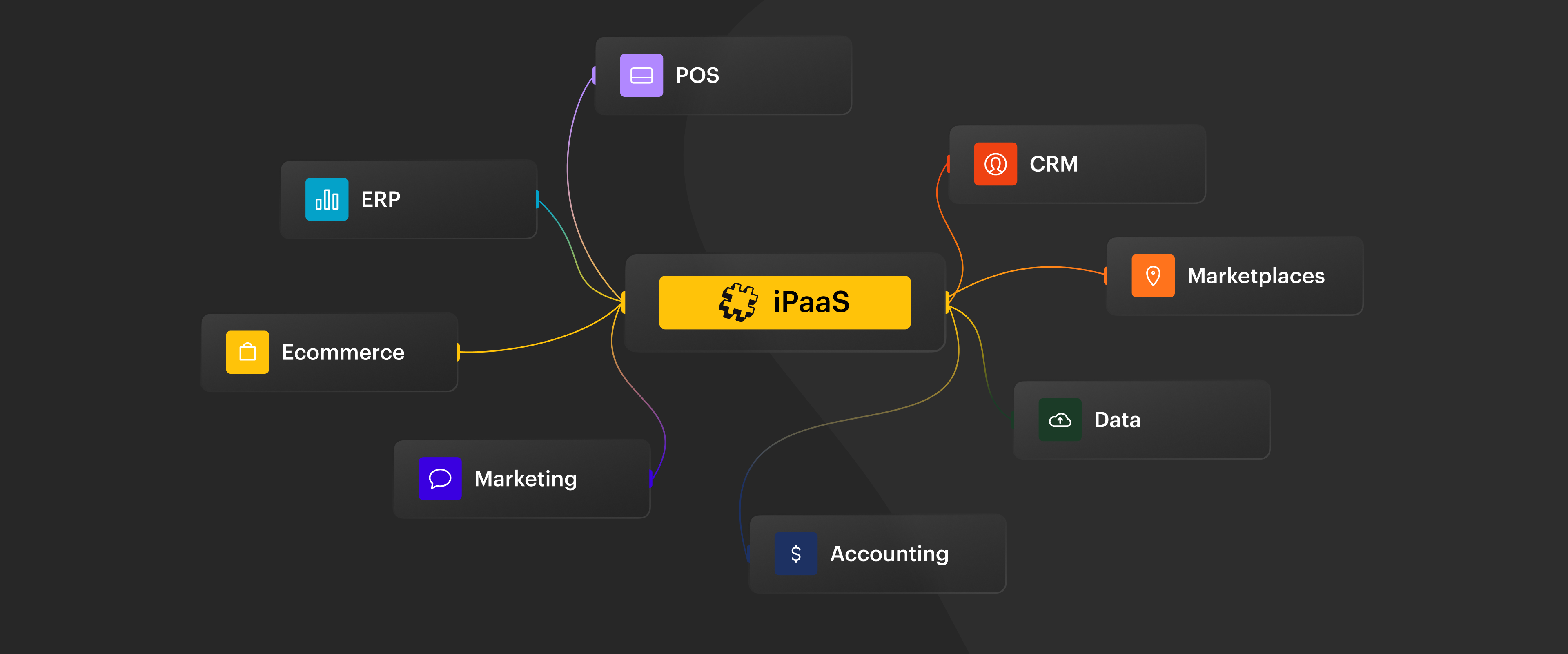Why Are Businesses Choosing an iPaaS: Navigating Connectivity, Complexity and Control
In today's hyper-connected retail environment, integrating technologies is more crucial than ever for optimum business performance. Merchants are constantly seeking ways to streamline operations, open new sales channels, enhance customer experiences, improve customer loyalty, and gain insights from their data. To achieve these goals, they need different systems and applications to communicate seamlessly. This is where Integration Platform as a Service (iPaaS) comes into play. But why do businesses opt for iPaaS platforms like Patchworks? To simplify this, I’ve grouped them into 3 core reasons.
1. Outgrowing Out-of-the-Box Connectors: The Need for Customisation
When a business begins its digital transformation journey, it often starts small. The initial integration requirements are usually straightforward—connecting a CRM system with an email marketing tool, or linking an e-commerce platform with inventory management software. Many platforms offer out-of-the-box connectors or apps that make these basic integrations simple and fast to implement.
As businesses scale, they often find that their initial integration solutions no longer meet their evolving needs. What started as a simple connection between two systems can become more complex as the business requires advanced workflows, data transformations, and custom logic. The out-of-the-box connectors, which were perfect for getting started, may not be able to handle this increased complexity.
This is where iPaaS platforms like Patchworks come in. Unlike rigid, one-size-fits-all solutions, iPaaS platforms allow for extensive customisation to tailor your integrations to match your business processes to maximise automation and reduce manual processes. Businesses can build upon existing connectors or create entirely new ones tailored to their specific requirements. This flexibility is crucial for companies that need to adapt quickly to market changes, innovate their processes, or integrate unique and proprietary systems.
2. No Out-of-the-Box Connection: The Challenge of System Compatibility
In some cases, businesses find themselves in a situation where no out-of-the-box connector exists for the systems they need to integrate. This is especially common when dealing with niche applications, legacy systems, or custom-built software. Without an easy way to connect these systems, businesses often resort to manual processes, which can be time-consuming, error-prone, and inefficient.
iPaaS platforms solve this problem by providing the tools necessary to create custom integrations from scratch. They allow businesses to bridge the gap between disparate systems, ensuring data flows smoothly and processes are automated, even when no pre-built connectors are available. This capability not only improves operational efficiency but also ensures that critical data is synchronised across all systems, reducing the risk of errors and discrepancies.




















































